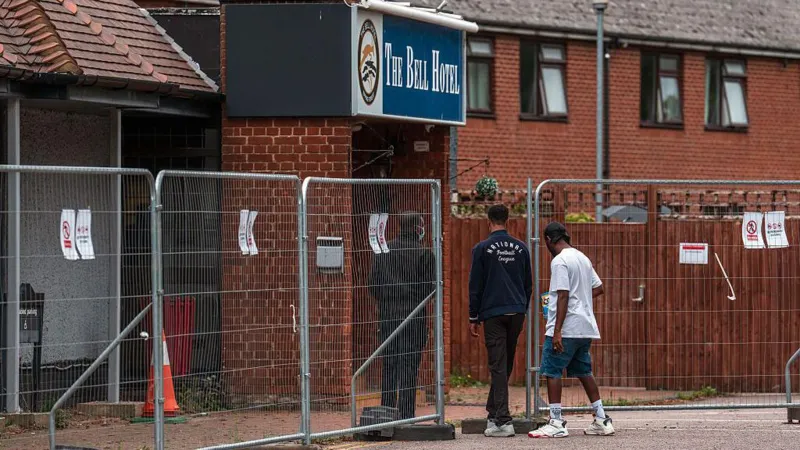The Home Office has been accused of “squandering billions” of pounds in taxpayer money on asylum accommodation following a scathing report by the Home Affairs Committee. MPs said that poor planning, flawed contracts, and mismanagement have left the department struggling to deal with rising numbers of asylum seekers, forcing it to rely heavily on hotels as long-term housing.
According to the report, the cost of asylum accommodation has tripled from an estimated £4.5 billion to more than £15 billion between 2019 and 2029. The committee criticized the Home Office for failing to recover millions in excess profits owed by private accommodation providers and for not imposing penalties on companies with poor performance.
MPs said that “incompetent delivery” and “inadequate oversight” meant that failings went unnoticed for years, resulting in spiraling costs and frustration among local communities. They described the current system—based heavily on hotel use—as “expensive, unpopular, and unsuitable for asylum seekers.”
A Home Office spokesperson responded that the government is “furious about the number of illegal migrants in this country and in hotels,” reaffirming its plan to stop using asylum hotels by 2029. Currently, the department is housing approximately 103,000 asylum seekers, including over 32,000 in 210 hotels across the UK.
Committee chair Dame Karen Bradley told BBC Radio 4 that weak contract management and poor leadership at senior levels had contributed to the crisis. “The government has only just started looking at claiming back those profits and auditing the accounts to see what is due back to the taxpayer,” she said, adding that the Home Office’s chaotic response showed it “was not up to the challenge.”
Why has the asylum accommodation system become so costly? MPs point to multiple factors, including the pandemic, the sharp rise in small boat arrivals, and delays in asylum decisions linked to the now-abandoned Rwanda deportation plan. These issues have compelled the government to house people for extended periods and incur costly hotel stays.
Housing Secretary Steve Reed also blamed the previous government for “pouring taxpayers’ money down the drain,” saying Labour ministers are exploring cheaper alternatives such as disused military bases and modular housing units. An official announcement on new asylum sites is expected “within weeks.”
Two former military bases — MDP Wethersfield in Essex and Napier Barracks in Kent — are already in use for housing asylum seekers. However, MPs warned that shifting too quickly into large sites without proper planning could repeat past mistakes.
Despite acknowledging the challenging environment, the committee concluded that the Home Office’s poor management and lack of long-term strategy have left taxpayers footing the bill. “The money should be going into public services, not sitting in private companies’ bank accounts,” the report said.
As the government pledges to close more hotels and move people into other facilities, critics argue that deeper reform is needed to fix the UK’s asylum system and restore public trust in how taxpayer money is spent.

